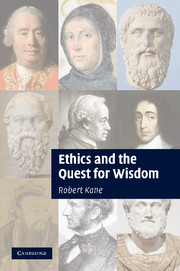Book contents
- Frontmatter
- Contents
- Acknowledgements
- 1 Introduction: pluralism and uncertainty
- 2 Openness
- 3 The retreat
- 4 The moral sphere
- 5 Fact and value
- 6 Value experiments
- 7 Virtues, excellences and forms of life
- 8 The fourth dimension
- 9 Aspiration
- 10 Wisdom
- 11 Objective worth
- 12 The Bach crystals
- 13 Human flourishing
- 14 The Faust legend and the mosaic
- 15 The good and the right (I): intuitionism, Kantianism
- 16 The good and the right (II): utilitarianism, consequentialism
- 17 The good and the right (III): contractualism
- 18 Politics, public morality and law: justice, care and virtue
- References
- Index
17 - The good and the right (III): contractualism
Published online by Cambridge University Press: 07 September 2010
- Frontmatter
- Contents
- Acknowledgements
- 1 Introduction: pluralism and uncertainty
- 2 Openness
- 3 The retreat
- 4 The moral sphere
- 5 Fact and value
- 6 Value experiments
- 7 Virtues, excellences and forms of life
- 8 The fourth dimension
- 9 Aspiration
- 10 Wisdom
- 11 Objective worth
- 12 The Bach crystals
- 13 Human flourishing
- 14 The Faust legend and the mosaic
- 15 The good and the right (I): intuitionism, Kantianism
- 16 The good and the right (II): utilitarianism, consequentialism
- 17 The good and the right (III): contractualism
- 18 Politics, public morality and law: justice, care and virtue
- References
- Index
Summary
CONTRACTUALISM AND THE MST: SCANLON
The further ethical theory I want to discuss in this chapter is contractualism, in the influential form given to that theory in recent philosophy by T. M. Scanlon. If Hooker's rule-consequentialism is the closest theory of its kind to the MST, Scanlon's contractualism as formulated in his major work, What We Owe to Each Other (1998), is the closest of any contractarian or contractualist moral theory to the MST. I find myself in sympathy with many of Scanlon's basic motivations in moral theory – e.g., his rejection of pure utilitarian and consequentialist approaches; his rejection of Kantian rationalism, Rossian intuitionism, and virtue ethics (despite borrowing insights or themes from all three); his rejection of contractarian moral theories of the Hobbesian kind; and his rejection of other ideal contract approaches to moral theory, notably that of Rawls (despite owing much to Rawls). I also agree with some (though not all) of what Scanlon says about the nature of value. Despite these agreements, however, there are significant and enlightening differences between Scanlon's contractualism and the MST that are worth exploring. (Throughout the chapter, when I speak of contractualism, I will mean Scanlon's version of it.)
Because of the similarities between the two theories, however, I will proceed as follows in this chapter. First, I will discuss the demands that Scanlon believes a successful moral theory and account of moral motivation must meet and will consider how contractualism, in his view, meets these demands.
- Type
- Chapter
- Information
- Ethics and the Quest for Wisdom , pp. 225 - 245Publisher: Cambridge University PressPrint publication year: 2010



